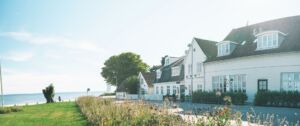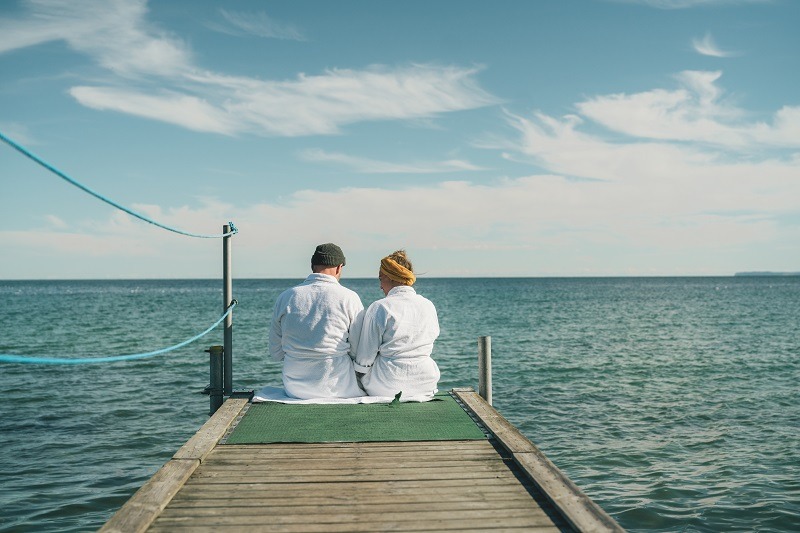News
Luxurious relaxing like in the old days
This article is more than 2 years old.
Looking for a romantic getaway or quality time with the family? The Danish badehoteller – typically small, old hotels located at the seaside – offer a taste of how the fine Danish bourgeoisie used to relax in historic surroundings

Badehoteller all over the country offer the same unique experience that made them popular back in the day (photo: Mads Tolstrup)
The sound of the waves coming in. A cold drink on the terrace or a warm cup of tea near the fireplace. A dinner in the restaurant where local specialties and good wine are served with elegance after a day of museums, reading, hiking, cycling or bathing in the sea that’s just a few minutes away.
The sum of all that: The luxurious feeling that members of high society once enjoyed all to themselves, but today is a popular way of relaxing and revitalising after busy everyday life in the city. It’s what Danish Badehoteller – typically small, old hotels located at the seaside – offer in abundance.
Within easy range
Even though many of these hotels are located in Jutland, there are still plenty to visit within an hour of Copenhagen.
Among the most well known ones are Helenekilde Badehotel in Tisvildeleje, Gilleleje Badehotel and Marienlyst Strandhotel in Helsingør, which are all on the north coast of Zealand, and Rødvig Kro og Badehotel in Stevns, just 40 km south of the capital.
As late as in 2022, Rødvig Kro og Badehotel was elected the best badehotel in the country after a vote in which more than 4,400 Danes participated.

(photo: Mads Tolstrup)
A historic experience
In the late 1800s and early 1900s it was no longer enough for the wealthy citizens of Copenhagen to take a trip to Frederiksberg – which at the time was ‘out in the country’.
This led to increasing interest in hotels located on or nearby Danish beaches.
At the same time the fine bourgeoisie opened their eyes to the benefits of fresh air and sea bathing, which was completely different from earlier times when that kind of activity was perceived as unhealthy.
Staying at these hotels accordingly became very popular in wealthy circles: not only was it a cool thing to do, but also healthy. This is just one of the reasons why the hotels are culturally interesting.
Later, when it became a lot cheaper to travel – for example, to Southern Europe and elsewhere, where the Danes had the guarantee of good weather – the market for holidaying Danes tightened, but in recent decades interest for badehoteller has grown.
Our increased preoccupation with nature and healthy living – along with the success of the TV 2 series ‘Badehotellet’, in which wealthy Danes during the Interwar Period enjoy the allure of such an establishment – are among the reasons why.
2023 standards
In recent years, badehoteller all over the country have looked into how they, in a modern way, can offer the same unique experience that made them popular back in the day.
Today, a great number of the hotels have spa areas, well-reviewed restaurants and luxurious rooms, but it is the unique atmosphere that is key if they want to attract
couples on a romantic weekend getaway – or families – looking for a special historic experience.
Further reading:
Links to places and hotels mentioned:
Helenekilde Badehotel: helenekilde.com
Marienlyst Strandhotel: marienlyst.dk
Gilleleje Badehotel: gillelejebadehotel.dk
Rødvig Kro og Badehotel: roedvigkro.dk
Stevns Klint Experience: stevnsklint.dk










































